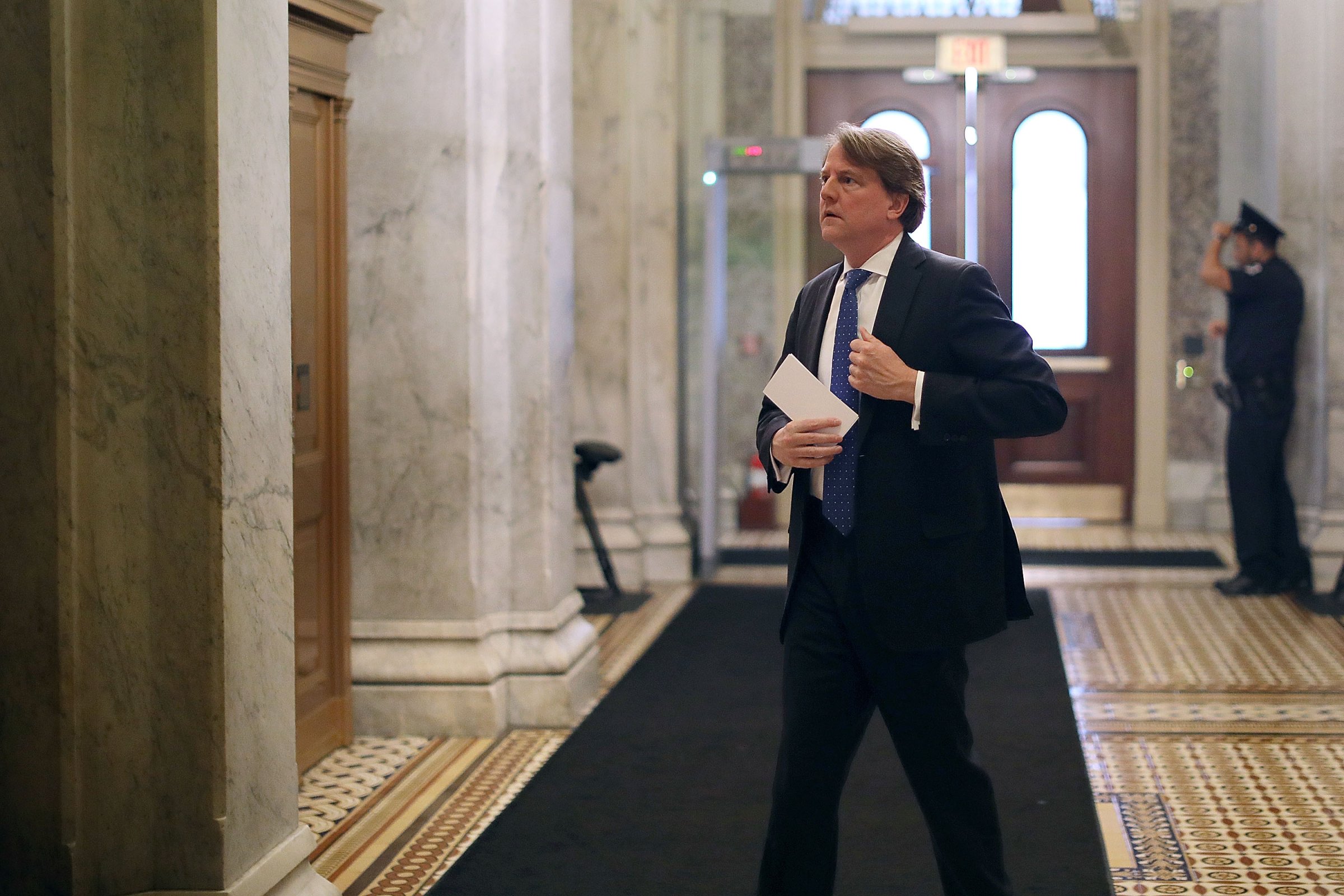
London is a retired partner for the law firm Paul, Weiss, Rifkind, Wharton & Garrison and the author of The Client Decides; he was a principal lawyer for Vice President Spiro Agnew.
The media are buzzing over the fact that White House counsel Don McGahn has spent some 30 hours talking to Special Counsel Robert Mueller’s team, and, as the New York Times revealed, President Donald Trump’s team does not know what he was asked and what he said. Indeed, according to the Times, after the initial Mueller-McGahn meeting, the President’s lawyers did not even inquire.
Logically, McGahn would have much to say on the subject of obstruction of justice. Recall that Trump reportedly instructed him to fire Mueller, and he refused to do so. Presumably, from his post in the White House, McGahn also might have extensive information about the delay in firing National Security Advisor Michael Flynn, such as what the President knew and when he learned it. That may also apply to the Trump Tower meeting between high-ranking Trump campaign officials and Russians.
In an effort to turn lemons into lemonade, Trump has taken credit for permitting McGahn to talk freely to the Mueller team. “I allowed him and all others to testify,” the President said in one of several tweets. “I didn’t have to. I have nothing to hide.” That storyline has been supported in interviews by his addled personal lawyer, Rudy Giuliani, who asserts that the McGahn revelations are good for Trump for two reasons:
First, Giuliani argued that McGahn said things only helpful to Trump. But when pressed, Rudy confessed he had no first-hand knowledge of what McGahn told Mueller — and all he knows is that a former personal lawyer for Trump said all was okay.
Second, Giuliani, a former U.S. Attorney, also argued that the facts were so exculpatory for the President that Trump allowed McGahn to tell all, and therefore the President declined to invoke either executive privilege or the attorney-client privilege to keep McGahn from spilling the beans.
Ha!
To begin with: There is no executive privilege in a criminal investigation except for military or diplomatic matters. The Supreme Court made that clear by its unanimous decision requiring Richard Nixon to give a grand jury the White House tapes that ultimately led to his resignation.
And second, the D.C. Circuit, in an opinion the Supreme Court has refused to review, has definitively held there was no attorney-client privilege between White House Counsel and President Bill Clinton that would protect advice or documents in Ken Starr’s criminal investigation, because White House counsel are not personal lawyers to the President. In effect, McGahn does not have the same status as Giuliani.
“With respect to investigations of Federal criminal offenses, and especially offenses committed by those in Government, Government attorneys stand in a far different position from members of the private bar. Their duty is not to defend clients against criminal charges and it is not to protect wrongdoers from public exposure. The constitutional responsibility of the President, and all members of the executive branch, is to ‘take Care that the Laws be faithfully executed.’”
Simply put, the Court unambiguously ruled:
“When an executive branch attorney is called before a Federal grand jury to give evidence about alleged crimes within the executive branch, … the attorney shall provide that evidence.”
President Trump’s tweets and Giuliani’s totally misleading and newly manufactured statements of the law are all false. The President did not volunteer to let McGahn talk to Mueller. The President lacked the power to stop him.
More Must-Reads from TIME
- Cybersecurity Experts Are Sounding the Alarm on DOGE
- Meet the 2025 Women of the Year
- The Harsh Truth About Disability Inclusion
- Why Do More Young Adults Have Cancer?
- Colman Domingo Leads With Radical Love
- How to Get Better at Doing Things Alone
- Michelle Zauner Stares Down the Darkness
Contact us at letters@time.com